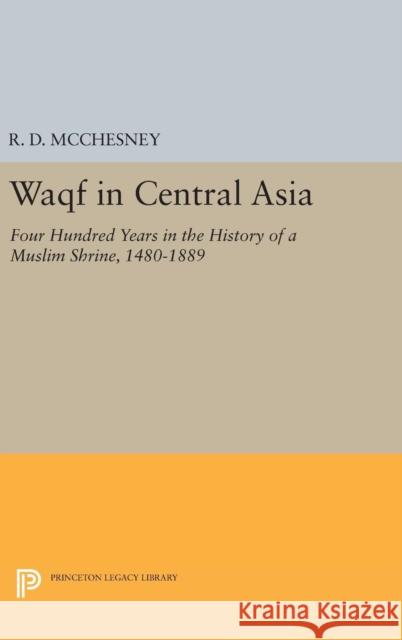Waqf in Central Asia: Four Hundred Years in the History of a Muslim Shrine, 1480-1889 » książka
Waqf in Central Asia: Four Hundred Years in the History of a Muslim Shrine, 1480-1889
ISBN-13: 9780691634418 / Angielski / Twarda / 2016 / 380 str.
Waqf in Central Asia: Four Hundred Years in the History of a Muslim Shrine, 1480-1889
ISBN-13: 9780691634418 / Angielski / Twarda / 2016 / 380 str.
(netto: 738,40 VAT: 5%)
Najniższa cena z 30 dni: 773,83 zł
ok. 22 dni roboczych.
Darmowa dostawa!
Waqfs, or religious endowments, have long been at the very center of daily Islamic life, establishing religious, cultural, and welfare institutions and serving as a legal means to keep family property intact through several generations. In this book R. D. McChesney focuses on the major Muslim shrine at Balkh--once a flourishing city on an ancient trade route in what is now northern Afghanistan--and provides a detailed study of the political, economic, and social conditions that influenced, and were influenced by, the development of a single religious endowment. From its founding in 1480 until 1889, when the Afghan government took control of it, the waqf at Balkh was a formidable economic force in a financially dynamic region, particularly during those times when the endowment's sacred character and the tax privileges it acquired gave its managers considerable financial security. This study sheds new light on the legal institution of waqf within Muslim society and on how political conditions affected the development of socio-religious institutions throughout Central Asia over a period of four hundred years.Originally published in 1991.The Princeton Legacy Library uses the latest print-on-demand technology to again make available previously out-of-print books from the distinguished backlist of Princeton University Press. These editions preserve the original texts of these important books while presenting them in durable paperback and hardcover editions. The goal of the Princeton Legacy Library is to vastly increase access to the rich scholarly heritage found in the thousands of books published by Princeton University Press since its founding in 1905.











